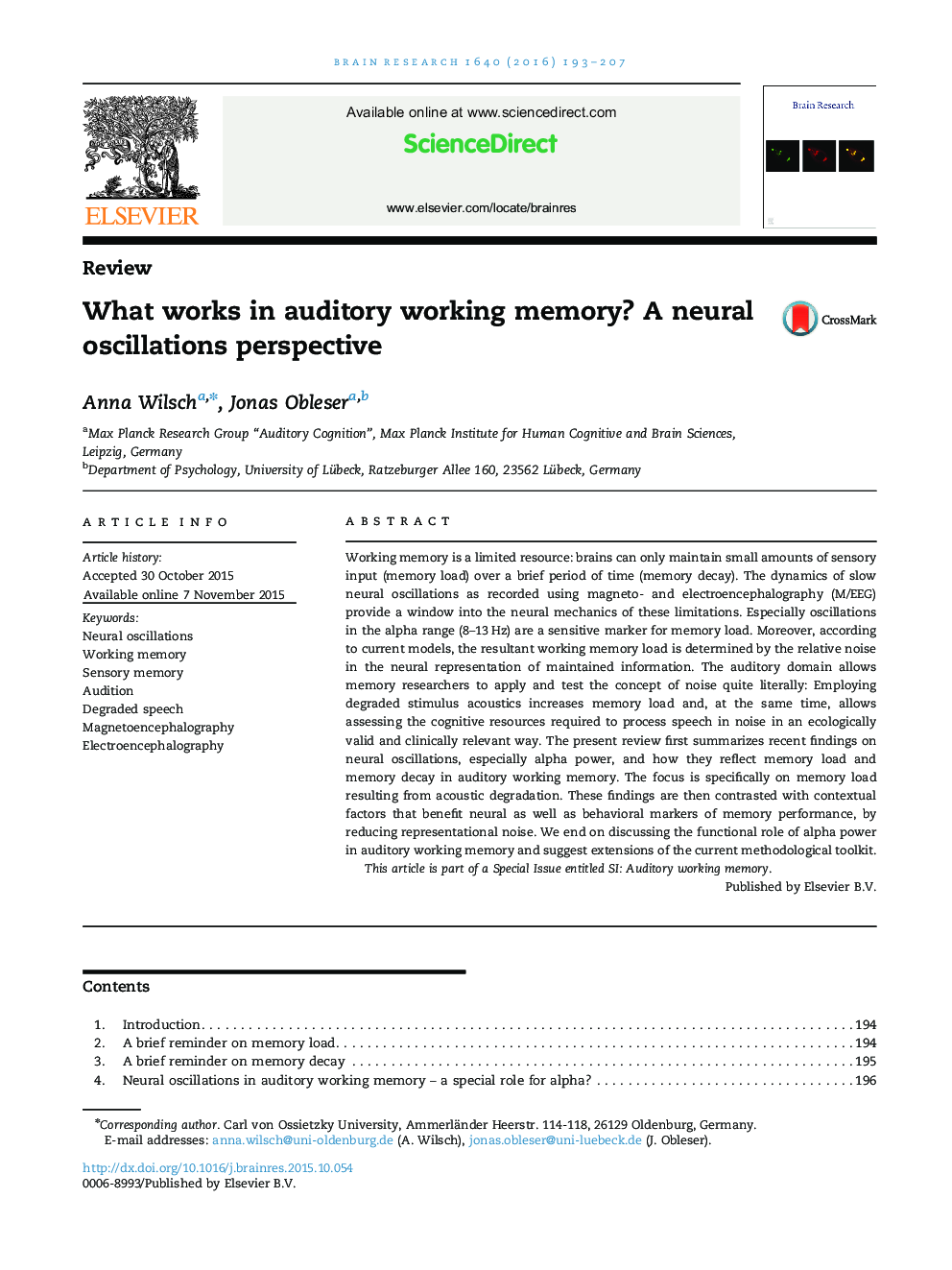| کد مقاله | کد نشریه | سال انتشار | مقاله انگلیسی | نسخه تمام متن |
|---|---|---|---|---|
| 6262535 | 1613801 | 2016 | 15 صفحه PDF | دانلود رایگان |

- Audition is an ideal test case to study noisy memory representations.
- Neural alpha-oscillatory dynamics provide a window into auditory working memory.
- Temporal and semantic predictability can counteract working memory load.
Working memory is a limited resource: brains can only maintain small amounts of sensory input (memory load) over a brief period of time (memory decay). The dynamics of slow neural oscillations as recorded using magneto- and electroencephalography (M/EEG) provide a window into the neural mechanics of these limitations. Especially oscillations in the alpha range (8-13Â Hz) are a sensitive marker for memory load. Moreover, according to current models, the resultant working memory load is determined by the relative noise in the neural representation of maintained information. The auditory domain allows memory researchers to apply and test the concept of noise quite literally: Employing degraded stimulus acoustics increases memory load and, at the same time, allows assessing the cognitive resources required to process speech in noise in an ecologically valid and clinically relevant way. The present review first summarizes recent findings on neural oscillations, especially alpha power, and how they reflect memory load and memory decay in auditory working memory. The focus is specifically on memory load resulting from acoustic degradation. These findings are then contrasted with contextual factors that benefit neural as well as behavioral markers of memory performance, by reducing representational noise. We end on discussing the functional role of alpha power in auditory working memory and suggest extensions of the current methodological toolkit.This article is part of a Special Issue entitled SI: Auditory working memory.
Journal: Brain Research - Volume 1640, Part B, 1 June 2016, Pages 193-207